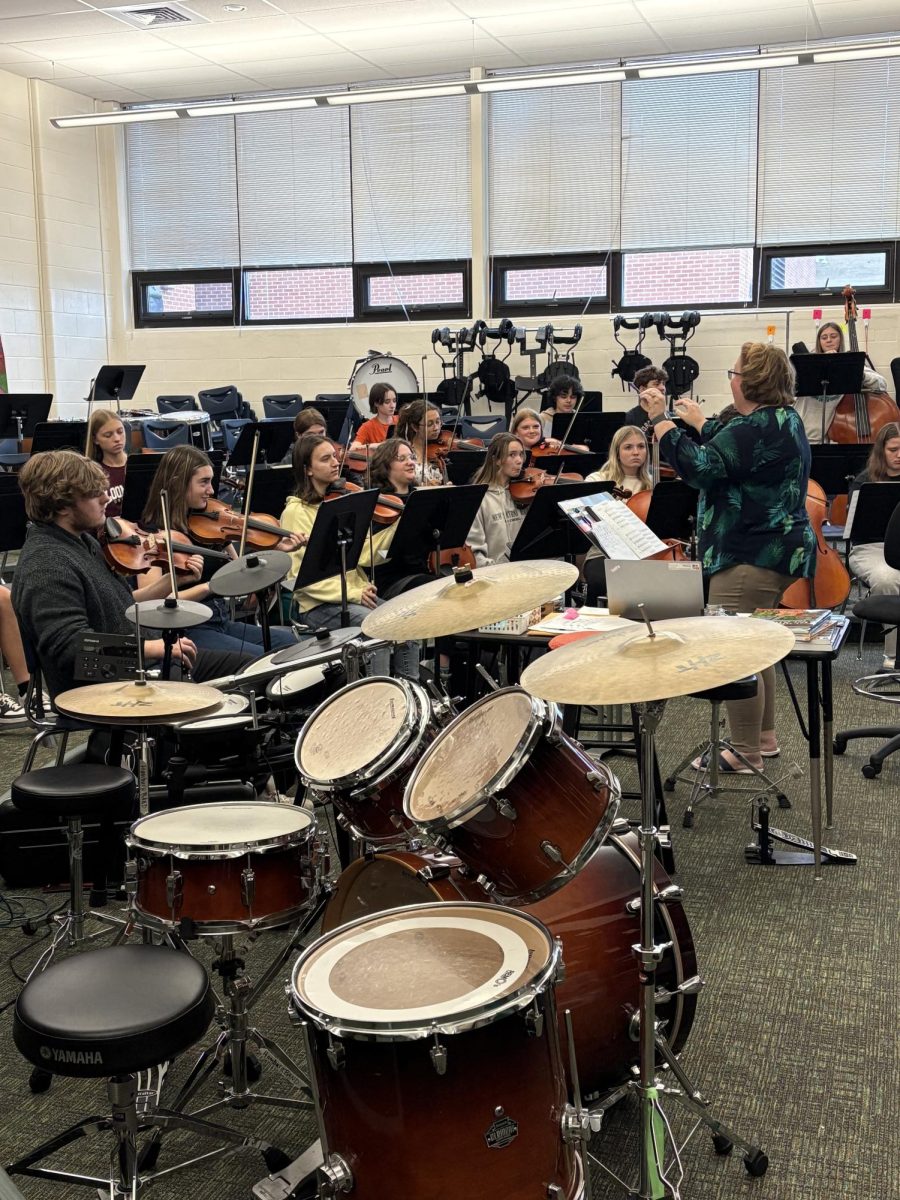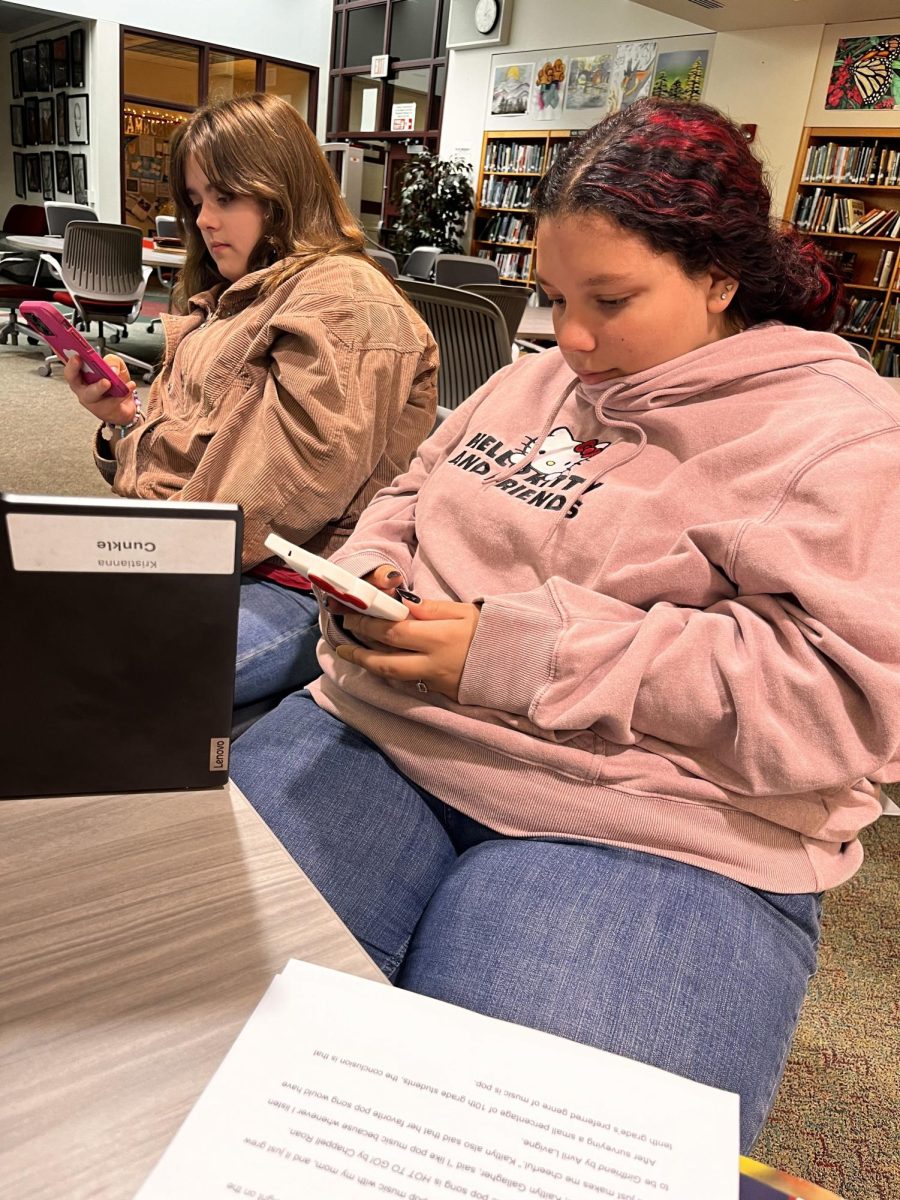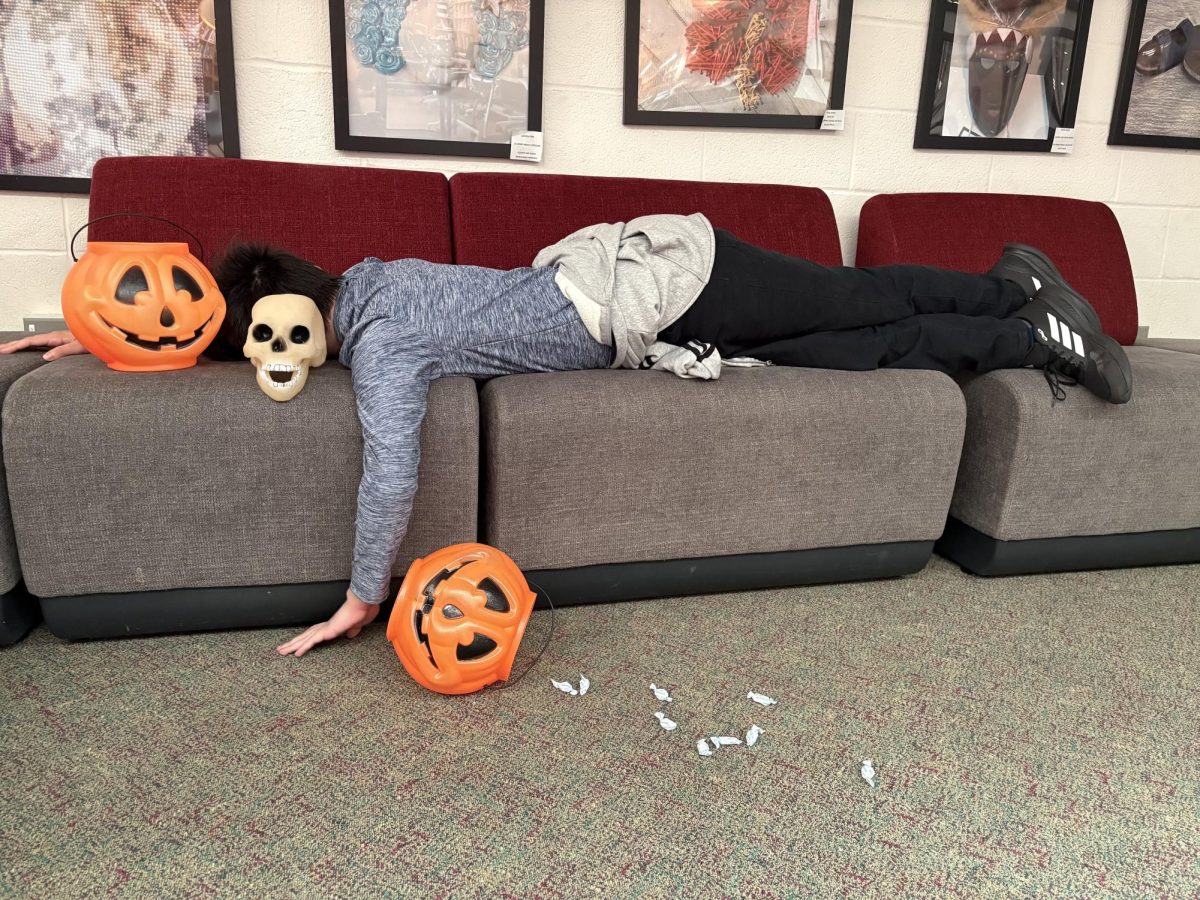In the past, the phone rules at HAHS were more laid back. Students could use them during privileged study halls, in the hallways, at lunch, and during flex time. This new school year though, the rules have been updated and some students are not too happy.
The consequences of having a phone out during classes and lunch have been buffed up a lot. A first offense ends with the phone being put into a pocket and a warning being placed into the Sapphire system. As a student continues with these offenses, the consequences get worse. The final offense ends with the phone being handed into the office every day and use throughout the day is not permitted at all, even during lunch and flex. This information is listed on the new flyers posted around the school.
A new place where phones are not allowed anymore are study halls. Last year and the years before that, students could sit on their phones during study halls. Now, they are not allowed to and can pass the time by either doing work, reading, and or just sitting there. A sophomore, Kaitlyn Gallagher, does not necessarily agree with this arrangement. “I do believe that having phones away during actual classes is beneficial, but study halls are my break throughout the day when I can relax on my phone and no I can’t do that,” said Kaitlyn.
Mrs. Fink, the assistant principal at Hamburg Area High School, gave several reasons for why phone rules have been updated. “The hope is that by enforcing a clear policy, we are able to have less disruptions and students can receive the education in which they deserve,” said Mrs Fink. This statement is true, especially pertaining to study halls. Last school year, a lot of incidents occured because of phone use. This includes blasting audio, taking photos without permission, and airdropping inappropriate images or videos. This made study halls hard to manage and not a very helpful learning environment. Mrs Fink also stated, “A benefit of having no phones in study halls is that students can focus on schoolwork and complete it while in the building rather than worrying about it at home.”
Another reason students believe phones should be allowed is in case of emergencies. Often times, parents or guardians will text their children about day to day events from home, which include emergencies or situations. To lessen the worry on students and parent’s minds, Mrs. Fink said the following, “I understand that some students and parents or guardians are concerned about if there might be an emergency but as always, parents and guardians can and should call the high school office and we will get their student immediately.
More information regarding the updated phone policy can be found in the student agenda as well as the various flyers hung around the school.































